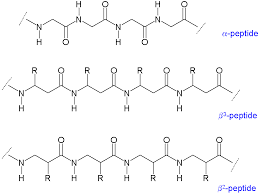Leptin Hormone Guide: The Effects Of The Satiety Hormone
Leptin Hormone Guide
What is Leptin?
Leptin is a hormone that has many purposes, but primarily it is responsible for the complete sensation that we get after the body decides that we've had enough to eat. It is frequently referred to as the “satiety hormone.”
Leptin is released by fat cells to control the way that our body stores fat. In addition to suppressing hunger, leptin alters how our body uses energy.
The fat cells release leptin when they have stored a certain level of fat converted from the calories from the food we eat. When released, leptin enters the bloodstream and passes through the body.
Leptin travels through the cardiovascular system to the hypothalamus, where it activates special receptors in the arcuate nucleus.
When leptin receptors are activated, it causes the body to increase metabolism while also reducing signals for hunger. Although this is primarily affected  through the brain, there are targets throughout the body that are also responsible for increasing metabolism.
through the brain, there are targets throughout the body that are also responsible for increasing metabolism.
The two hormones, Leptin and Ghrelin, have opposite component effects on the body. Whereas leptin controls the feeling of satiation, Ghrelin controls the sensation of hunger. Leptin and Ghrelin receptors are located on the same cells and are two vital hormones responsible for how our body stores and expends energy.
Leptin has a number of different purposes in the body, but the most important of these is the regulation of the way the body stores fat. Our knowledge of Leptin works is far from complete, but leptin is produced not only by fat cells but also by other organs.
Where is Leptin Produced?
The majority of leptin is secreted by white adipose fat tissue by organelles known as adipocytes. Leptin is secreted from other locations, including the liver, pituitary, bone marrow, epithelial cells, stomach, skeletal muscle, ovaries, placenta, and brown adipose fat tissue.
What Causes Leptin Levels to Fluctuate?
Like other hormones such as Testosterone, Leptin flows through the bloodstream, locked into a carrier protein and freely. Because body fat produces leptin, the more body fat a person carries, the more leptin they will produce.
Perhaps surprisingly, the amount of leptin produced by body fat increases exponentially with the volume of body fat that a person carries.
Leptin concentrations also follow the circadian rhythm under normal circumstances. From around 12 am to some point in the early morning, leptin levels remain pretty high, which is believed to prevent hunger and promote sleep.
Although this is the typical pattern of leptin release and circulation, if a person eats at odd times, such as in the middle of the night, this alters the rhythm of leptin release.
There are many ways that Leptin production is unrelated to body fat as well:
Fasting for one to three days reduces Leptin production, even if body fat remains the same. Related to this, Leptin levels also drop as a response to starvation, encouraging hunger even when the body still has a large amount of body fat. This is actually one reason why crash diets don't work effectively. Starving yourself will eventually cause you to lose weight. Still, once you lose the weight, your body will not be able to effectively send signals for satiation, causing you to eat more than your body needs and experience hunger even though you are eating a healthy diet.
Psychological stress increases Leptin Production.
Leptin is affected significantly by sex hormone concentrations in the body. Testosterone is associated with reduced leptin, whereas estrogen is associated with increased leptin. Some hormones released in response to stress, including dexamethasone, also increase leptin secretion.
Physical training will cause leptin levels to drop for the duration of time that a person engages in a healthy exercise routine. This makes sense because physical exercise stimulates metabolism and increases the need for calories to maintain a certain weight.
The more insulin your body produces, the more leptin that your body will produce.
For complex reasons, obesity actually leads to an increase in Leptin production.
Overweight individuals with obstructive sleep apnea experience increased leptin levels, but CPAP treatment can bring leptin production back to more
 normalized levels. Short-term sleep deprivation can reduce Leptin production, but long-term issues with sleep deprivation, such as sleep apnea, can increase leptin concentrations.
normalized levels. Short-term sleep deprivation can reduce Leptin production, but long-term issues with sleep deprivation, such as sleep apnea, can increase leptin concentrations.
Effects of Leptin
After Leptin is released by body fat and other cells, it suppresses hunger primarily through three mechanisms:
Encourages the production of α-MSH, which suppresses hunger.
Blocks the activity of anandamide, a hormone that encourages hunger via the exact mechanism of THC present in marijuana.
Blocks the activity of Neuropeptide Y, a molecule released by the hypothalamus and the stomach which encourages hunger.
Even though leptin is the hormone we most associate with hunger, it is only responsible for long-term appetite control. Other hormones are responsible for short-term and intermediate hunger:
PYY3-36 is the reason why we don't feel hungry between meals. This hormone encourages us to eat our meals during single sittings.
Cholecystokinin is the hormone produced as we eat, inhibiting hunger signals. This hormone helps us know when we are full at a particular meal.
Of course, leptin plays a role in how these hormones function. Animal research involving leptin clearly shows how the hormone contributes to diet control, as animals that have their ability to produce leptin removed gain weight uncontrollably as a result of a loss of their ability to become whole.
Caloric restriction and fasting both have an inhibitive effect on the production of Leptin. In addition to this, the body is more reactive to the absence of food rather than its overabundance, so Leptin production will change faster and more dramatically when the body is not getting enough food.
This also means that once food access is restored, the hunger response won't return to normal as quickly as it was first altered.
Changes in leptin production resulting from abrupt changes in food access appear to be correlated with changes in food intake and diet rather than the energy available that is locked in body fat. This means that leptin suppression due to hunger is not mitigated by existing body fat.
How Does Leptin Control Diet?
Leptin encourages eating and changes in metabolism by triggering receptors in the mediobasal hypothalamus. It was believed that blood sugar directly controlled metabolism and eating patterns, but it is clear today that leptin is the mediator of this process.
As we mentioned earlier, Neuropeptide Y activity encourages hunger. Some neurons produce this hormone in the arcuate nucleus. As leptin passes through the body, it binds to these neurons, preventing the release of this potent hunger hormone and promoting a disinterest in food.
There is also evidence that when Leptin levels are in balance, it is easier to eat a healthy diet and not be tempted by the allure of calorie-dense foods.
Prior research has shown that Neuropeptide Y is vital in animals' eating, including humans. When Neuropeptide Y is artificially introduced to the brain, it automatically triggers the animal to seek out food.
The opposite is also true. If the neurons that produce Neuropeptide Y are destroyed, the mice will become disinterested in eating and drastically underweight.
Leptin also encourages the release of a peptide known as α-MSH, which promotes the feeling of satiety. Genetic abnormalities that limit α-MSH have been shown to increase hunger response and increase the risk of obesity considerably.
Melatonin Affects Leptin Production
In a vacuum, elevated melatonin leads directly to reduced production of leptin. On the other hand, if insulin is in circulation, melatonin leads to an increase in leptin production. This interaction is crucial because it prevents us from becoming hungry while we are asleep, which can disturb sleep patterns.
This is why eating a healthy dinner a few hours before bed is generally encouraged. This way, your stomach isn't full while you are asleep, but your digestive system is still somewhat active, which means that you have insulin and melatonin in your bloodstream, which encourages healthy sleep.
By the end of the night, when insulin levels drop, Leptin levels start to fall as well, as melatonin levels are still elevated. This, in combination with an increase in cortisol and other factors, helps set the stage for you to wake up refreshed and hungry.
Leptin and Diabetes
Preliminary animal research shows that combining leptin with insulin improves metabolism and stabilizes blood sugar more effectively. This combination also helped promote healthier body composition while also balancing cholesterol.
Leptin and the Cardiovascular System
Leptin has an impact on the activity of T-Cells in the immune system. Leptin promotes the health of the heart tissue, and healthy leptin levels reduce inflammatory activity, which promotes atherosclerosis. There is also evidence that elevated Leptin levels can help control blood pressure if prescribed medically.
Leptin and the Reproductive System
Leptin does not play any predominant role in human fertility, but it is essential and necessary to create the conditions which promote fertility. The regularity of the menstrual cycle depends upon proper metabolism and the normalized flow of energy through the body, which leptin plays a part in regulating.
If a woman frequently enters a state of starvation, whether purposefully or unintentionally, the menstrual cycle will go into dormancy. Also, if women engage in heavy exercise, they risk entering this state, even if they consume enough calories to meet the demands of their bodies.
On the other hand, menstruation is only affected by low body mass in extreme cases.
In both sexes, Leptin encourages the hypothalamus to produce Gonadotropin-Releasing Hormone, the precursor to Luteinizing Hormone and Follicle-Stimulating Hormone necessary to encourage both sex hormone production as well as sperm production.
Leptin and Pregnancy
During pregnancy, leptin is produced by the placenta, and it continues to be produced in greater concentration throughout pregnancy before returning to baseline after the child is born. T
his is because leptin has an inhibitory effect upon contractions, allowing the child to develop within the womb. When leptin levels fall, this encourages contractions and helps to stimulate childbirth. Elevated leptin levels also contribute to the condition of morning sickness that commonly takes place during pregnancy.
Leptin and Puberty
Two hormones determine when an individual enters puberty: kisspeptin and leptin. In the period just before puberty, leptin levels start to rise, and once they reach a certain point, puberty is triggered.
Childhood obesity can lead to early puberty because adipose fat cells produce leptin and cause leptin levels to reach the triggering point much faster than in children with normal body fat levels.
There is also evidence that girls that enter puberty early don't grow as tall as their peers because the increase in estrogen production promotes the closure of the growth plates.
Leptin and Bone Mineral Density
Leptin also appears to help promote healthy bone mineral density. When the brain receives sufficient satiation signals, it then signals the bones to undergo metabolic changes, which promote cortical bone growth and inhibit cancellous bone. Cancellous bone is the softer tissue in the core of the bone, and cortical bone is the hard casing that covers the cancellous bone.
Thus, leptin plays a role in bone maturation during puberty because the bones become thicker and more complicated, allowing them to carry more  weight.
weight.
After puberty, leptin still plays a role in bone metabolism because once it activates at its receptor sites on the hypothalamus, is alters the production of a number of other hormones and peptides associated with the regulation of bone mineral density.
There is also some evidence that Leptin directly contributes to increased bone mineral density by playing an intermediary role between metabolism and the release and activation of Insulin-Like Growth Factor-One. As a result of this connection, there may be future treatments that utilize leptin to enhance the natural healing processes of bone tissue after breaks and fractures.
Leptin and the Brain
Although the primary trigger point for leptin is the hypothalamus, there are also receptors for the hormone at other locations within the brain. One of the largest receptor sites outside of the hypothalamus is the hippocampus.
Research has clearly shown that Leptin Deficiency hurts the normal function of neurons and brain proteins. In animal studies, in this instance, the normal neurological function can be restored by providing leptin injections.
In humans, Leptin Deficiency is associated with neurological and cognitive changes that are associated with HIV, depression, and anorexia.
There is even evidence in rats that leptin deficiency may play a role in Alzheimer's and that providing leptin therapy may be able to increase cognitive ability and reduce the adverse effects of the disease by limiting the concentrations of hyperphosphorylated tau and b-amyloid, which are two of the main factors which make Alzheimer's such a devastating neurological disorder.
Leptin and the Immune System
Leptin is intricately related to the immune system's response to inflammation, and leptin has a regulatory effect upon a number of factors that affect immune health, including body fat, caloric restriction, stress, sleep, and Testosterone levels.
It is hypothesized that the primary mechanism which links Leptin to immune health is that Leptin helps control the activity of cytokines released by adipose tissue.
Leptin is structurally similar to cytokines in function and molecular composition. There is evidence that Leptin is active in how the body handles and manages stress, but the direct mechanisms are not entirely understood. There is also a positive correlation between white blood cell count and leptin levels.
Diseases Associated with High Leptin Levels
A number of medical conditions are associated with abnormally high leptin levels, especially those associated with inflammation. Among these are cardiovascular disease, chronic fatigue, and hypertension.
Elevated levels of leptin are correlated with overeating, the mass of adipose fat cells, and overall body composition, but leptin is not connected in any way to physical activity. Exercise does not stimulate or suppress the production of leptin directly.
For this reason, it is hypothesized that leptin is designed to activate only inflammation related to adipose fat. Leptin promotes the formation of new blood  vessels, promotes inflammation, and encourages cellular metabolism.
vessels, promotes inflammation, and encourages cellular metabolism.
Based on these factors, it is believed that the elevation of leptin levels due to overeating is a mechanism designed to limit the stress on fat cells caused by abrupt changes related to increased caloric intake.
When the fat cells no longer have enough room to absorb all the calories being delivered, this causes the body to begin to store fat in the muscles, arteries, and organs, which is dangerous.
So in this sense, leptin triggers satiation to prevent the body from eating so much that the fat cells can no longer make room for it all, but obesity causes the body to produce too much of the hormone, which can have adverse effects.
Like other inflammatory/stress hormones, the body needs leptin. Still, serious issues can result when the hormone is allowed to remain at abnormally high levels for too long.
References:
The Facts on Leptin: FAQ - The Truth about the Hormone Leptin and Obesity
http://www.webmd.com/diet/features/the-facts-on-leptin-faq
Serum Leptin Levels in Males with Delayed Puberty during Short-Term Pulsatile GnRH Administration.
http://www.ncbi.nlm.nih.gov/pubmed/10090130
Wikipedia: Leptin
http://en.wikipedia.org/wiki/Leptin
- 0001 What Is Adrenal Fatigue [Last Updated On: May 20th, 2025] [Originally Added On: October 23rd, 2020]
- 0002 Understanding Thyroid Function And Diagnosing Thyroid Issues [Last Updated On: May 21st, 2025] [Originally Added On: October 24th, 2020]
- 0003 Twelve Steps To Enhance And Preserve Your Memory [Last Updated On: January 28th, 2025] [Originally Added On: October 25th, 2020]
- 0004 The Psychological And Physiological Effects Of Serotonin [Last Updated On: January 28th, 2025] [Originally Added On: October 26th, 2020]
- 0005 The Facts About Psoriasis: Symptoms And Causes [Last Updated On: January 27th, 2025] [Originally Added On: October 27th, 2020]
- 0006 The Facts About Acromegaly [Last Updated On: May 24th, 2025] [Originally Added On: October 28th, 2020]
- 0007 The Effects Of Hgh Deficiency Upon One Of A Pair Of Twins [Last Updated On: January 27th, 2025] [Originally Added On: October 29th, 2020]
- 0008 Resveratrol Anti-aging Supplementation For Longevity [Last Updated On: May 19th, 2025] [Originally Added On: October 30th, 2020]
- 0009 Sermorelin Acetate Injections With Ghrp-6 [Last Updated On: February 18th, 2025] [Originally Added On: October 31st, 2020]
- 0010 Melatonin The Sleep Hormone How It Impacts Your Health [Last Updated On: May 26th, 2025] [Originally Added On: November 1st, 2020]
- 0011 Mark Cuban To Fund Study On Healing Power Of Hgh [Last Updated On: May 27th, 2025] [Originally Added On: November 2nd, 2020]
- 0012 Mark Cuban Advocates For Hgh As A Rehab And Recovery Tool [Last Updated On: January 26th, 2025] [Originally Added On: November 3rd, 2020]
- 0013 Human Growth Hormone Deficiency Impact On Sleeping Habits [Last Updated On: January 2nd, 2026] [Originally Added On: November 5th, 2020]
- 0014 Human Growth Hormone And Liver Regeneration [Last Updated On: January 1st, 2026] [Originally Added On: November 6th, 2020]
- 0015 Hgh Treatment For Fatty Liver Disease On The Horizon [Last Updated On: February 17th, 2025] [Originally Added On: November 7th, 2020]
- 0016 Your Current HGH Level [Last Updated On: March 28th, 2025] [Originally Added On: November 8th, 2020]
- 0017 Ghrelin The Hunger Hormone [Last Updated On: December 31st, 2025] [Originally Added On: November 9th, 2020]
- 0018 Enclomiphene Citrate Andropause Treatment Up For Fda Approval [Last Updated On: December 30th, 2025] [Originally Added On: November 10th, 2020]
- 0019 Dopamine Pleasure Hormone And So Much More [Last Updated On: April 26th, 2025] [Originally Added On: November 11th, 2020]
- 0020 Diabetes Cure On The Horizon [Last Updated On: December 29th, 2025] [Originally Added On: November 12th, 2020]
- 0021 Boost Metabolism To Lose Weight And Maintain Weight Loss [Last Updated On: December 28th, 2025] [Originally Added On: November 13th, 2020]
- 0022 Andropause A Mid-life Hormone Crisis [Last Updated On: February 18th, 2025] [Originally Added On: November 14th, 2020]
- 0023 SOGROYA INJECTIONS FOR HUMAN GROWTH HORMONE DEFICIENCY [Last Updated On: February 19th, 2025] [Originally Added On: March 24th, 2021]
- 0024 How Do High and Low Estrogen Impact Male Health and Wellness? [Last Updated On: February 9th, 2025] [Originally Added On: April 2nd, 2021]
- 0025 The Effects Of Hormone Imbalance On Belly Fat [Last Updated On: February 18th, 2025] [Originally Added On: May 8th, 2021]
- 0026 Could Sunlight Help Remove Rogue Hormones from the Water Supply? [Last Updated On: February 20th, 2025] [Originally Added On: May 29th, 2021]
- 0027 Weekly HGH Therapy Just as Effective as Daily Injections [Last Updated On: April 4th, 2025] [Originally Added On: June 18th, 2021]
- 0028 DHEA and Testosterone: A winning team! [Last Updated On: February 14th, 2025] [Originally Added On: January 19th, 2022]
- 0029 Animal Research Discovers Link Between Exercise, HGH, and Cognitive Ability [Last Updated On: February 14th, 2025] [Originally Added On: May 20th, 2022]
- 0030 Weekly Hormone Treatments for Adult HGH Deficiency with Sogroya [Last Updated On: February 18th, 2025] [Originally Added On: June 14th, 2022]
- 0031 Ancient Critters Made Human Hormone System What It Is Today [Last Updated On: March 13th, 2025] [Originally Added On: June 26th, 2022]
- 0032 How Substance Abuse Can Affect Your Hormone Levels [Last Updated On: March 16th, 2025] [Originally Added On: August 4th, 2022]
- 0033 A Holistic Approach to Health and Water Safety [Last Updated On: February 7th, 2025] [Originally Added On: February 7th, 2025]
- 0034 Understanding the Role of Sogroya in Adult Human Growth Hormone (HGH) Deficiency Treatment [Last Updated On: February 12th, 2025] [Originally Added On: February 11th, 2025]
- 0035 Andropause: An Examination of Mid-life Hormonal Shifts in Males [Last Updated On: February 16th, 2025] [Originally Added On: February 13th, 2025]
- 0036 Sermorelin Acetate Therapy: A Comprehensive Insight into its Benefits with GHRP-6 [Last Updated On: February 17th, 2025] [Originally Added On: February 14th, 2025]
- 0037 The Dynamic Duo of Male Vitality: Testosterone and DHEA [Last Updated On: February 14th, 2025] [Originally Added On: February 14th, 2025]
Word Count: 2526






